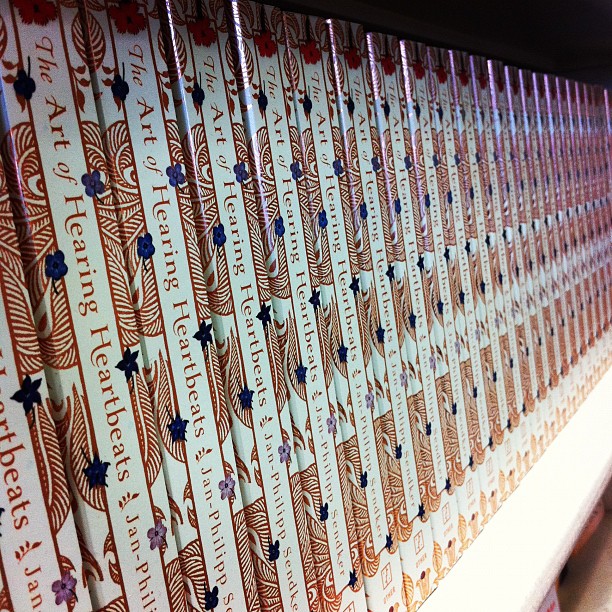Today I leave for Burma. I am excited and anxious and very curious.
I have travelled to Burma more than a dozen times. It is a country where I have close friends, where I feel very comfortable. There is almost a sense of belonging.
My last trip was a year and a half ago. For Burma, that didn’t used to be a long time. Time didn’t matter much. Things used to change very slowly, if they changed at all. Kalaw, the town where my novel The Art of Hearing Heartbeats is set, looks more or less the same as it did seventeen years ago, when I first travelled there: the same old and run down buildings, the same potholes in the streets. In my hotel I was the only guest, like always, in my room there was still the same fridge. It didn’t work on my fist visit. It didn’t work on my last visit.
But it could be different now. All of the sudden Burma is in the headlines. The opposition leader Aung San Suu Kyi is no longer under house arrest; she is even running for a parliamentary seat in April. Hillary Clinton visited her recently and they gave a press conference together. Unthinkable just a few months ago.
I hear there is more freedom of the press now, people are less scared and the new Burmese government promises even more reforms.
When I asked a friend to make a hotel reservation for me he replied two days later that all the hotels in Yangon, the former capital, are booked for the next several weeks. I thought he was kidding. It is the beginning of the hot season, not exactly the best time for tourists. The hotels used to be empty. I used to walk the streets for days without noticing a foreigner. Who is occupying all the hotel rooms now? Why are these people travelling to Burma?
I wonder if the signs for political and economic change are real or artifice, a well-staged play to convince the West to lift their sanctions. Are the military and their cronies prepared to give up at least some of their power and privileges? And if things have started to change for real, how will it affect the people? Who will benefit? Who will suffer even more? Who will be able to adjust and take advantage of new opportunities, and who will be left behind? I cannot imagine a place less prepared for the influx of money, whether it is investment or aid.
What about my friends and their families? Will they be busy all of the sudden? Will they chase a dream of progress for the first time in their lives? My best friend had to send two of his three children abroad because he thought they had no future in their home country. They haven’t seen each other in many years. Will they be tempted to come back, at least to visit their father?
I am about to find out and will keep you posted.
Today I leave for Burma. I am excited and anxious and very curious.



 Transporting goods or traveling in Burma is never easy.
Transporting goods or traveling in Burma is never easy.